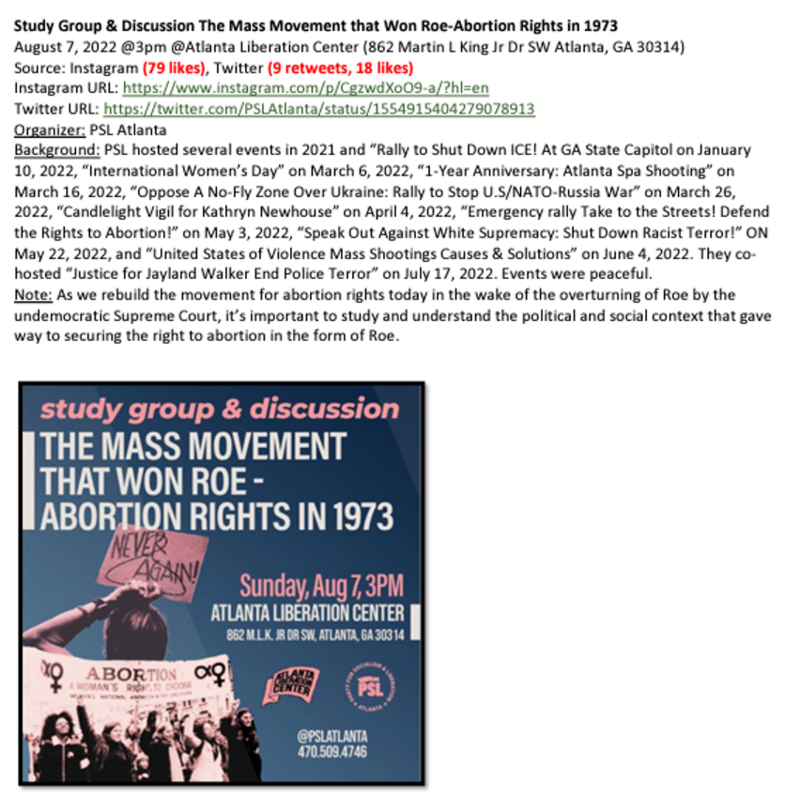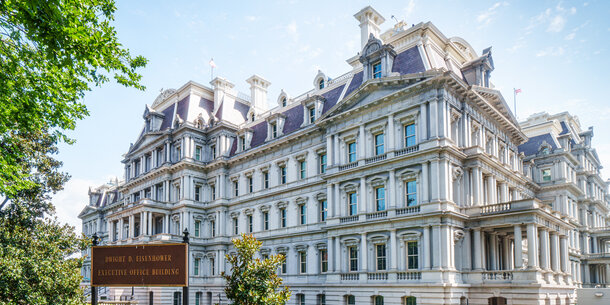Georgia authorities have waged a two-year long contentious battle against activists opposed to the construction of a police training facility in Atlanta dubbed “Cop City.” The Brennan Center obtained and has analyzed over 2,300 pages of emails and intelligence reports via public records requests. The intelligence reports — and their broad sharing via email — expose the Atlanta Police Department’s (APD) extensive monitoring of the routine political activity of opponents of the training facility.
While social media monitoring can help police effectively allocate resources to maintain public safety, APD’s broad monitoring of peaceful protesters and organizing events far exceeds that purpose. Targets of this monitoring include signature collection, canvassing, a town hall, pizza nights and reading groups, and get-togethers to talk about neighborhood safety. APD’s operations undermine protesters’ First Amendment rights, help portray them as domestic terrorists, and drive a narrative supporting the indictment of 61 activists on racketeering charges, all while offering no public safety upside.
A lack of guidelines and protections surrounding APD’s social media monitoring operations enabled these politicized surveillance practices. As the Brennan Center has recommended elsewhere, police departments such as APD must adopt stricter guidelines that explicitly prohibit basing policing decisions on constitutionally protected activities and surveillance of those activities unless there is specific, credible, and documented evidence of a public safety concern.








